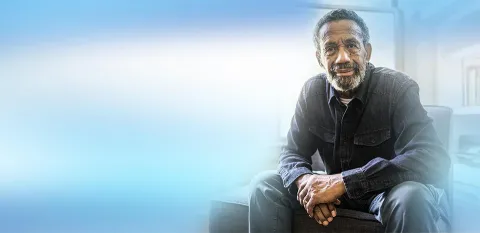Lung Cancer Screening: Essential Information

Early detection is crucial in the fight against lung cancer, as most cases are discovered only after the cancer has spread, leading to lower survival rates. To increase the chances of successful treatment, lung cancer screening is highly recommended for high-risk individuals, particularly those with a significant smoking history and advanced age, as it can identify cancer at an earlier, more treatable stage.
It’s estimated that more than 230,000 Americans will be diagnosed and 125,000 will die of lung cancer. This makes lung cancer the most common cause of cancer-related deaths in the U.S. These numbers are startling, and it’s up to you to take the next step and be proactive before it’s too late.
Lung Cancer Risk Factors
Smoking is the most common cause of lung cancer. Stopping smoking is the biggest opportunity to prevent lung cancer. When smoking is combined with other factors, the risk of the disease increases. Other risk factors include:
- Exposure to secondhand smoke
- Family history of lung cancer
- Treatment with radiation therapy to the breast or chest
- Exposure to asbestos, chromium, nickel, arsenic, soot or tar
- Exposure to radon
Early Detection Can Save Your Life
Detecting lung cancer through a CT lung cancer screening test before symptoms begin can prevent death. Getting a CT lung cancer screening examination is easy.
- Comfortable: The CT lung screening exam is pain-free.
- Quick: The entire exam takes 10 minutes.
- Safe: There are no injections or pills. There is low radiation and minimal risk.
- Affordable: Most insurance plans, including Medicare Part B, cover CT lung screening if you qualify.
- Accredited: is a designated Lung Cancer Screening Center by the American College of Radiology
Do You Qualify for a Lung Cancer Screening?
You should be screened if you meet all of the following lung cancer screening guidelines:
- Be 50 to 80 years old
- Currently smoke cigarettes or have quit smoking in the past 15 years
- Have smoked at least an average of one pack of cigarettes a day for 20 years (referred to as 20 pack-years); Use this calculator to determine your risk based on your smoking history.
- Have no current symptoms of lung cancer, such as coughing up blood or sudden, unexplained weight loss
Screening guidelines also recommend more Black Americans and women be screened. These two populations tend to see greater impacts of tobacco use with lesser exposure.
What to Expect After the Screening?
After your scan, a radiologist will read it and send a report to your referring doctor. The report may include follow-up recommendations. These could include additional testing, biopsy or a referral to a cancer specialist. If there are no findings, the doctor may recommend another scan in a year. Before making an appointment for a screening, you should discuss with your provider the benefits, limitations and risks of screening.
Note: The content of this blog is for informational purposes only. It is not intended for use as diagnosis or treatment of a health problem or as a substitute for the professional consultation of a physician or qualified health care provider. If you have specific questions or concerns regarding a health or medical condition, contact your physician or a licensed health care professional.

